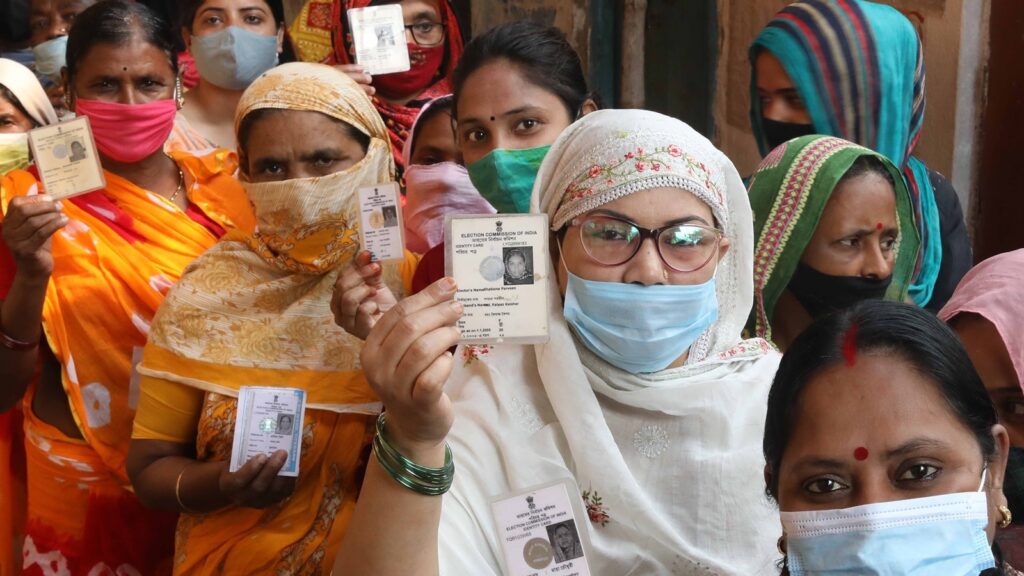THE KARNATAKA CID’s investigation into irregular applications seeking deletion of names from voter lists for the Aland Assembly constituency, ahead of the 2023 state polls, shows that nearly 100 SIM cards were involved in the exercise.
Sources said separate SIM cards were used to create logins on voter apps of the Election Commission (National Voters’ Services Portal or NVSP, Voter Helpline App or VHA, and Garuda) via OTPs, and to apply online for the deletion of a name across Aland’s 254 polling booths.
Aland in Kalaburagi district was one of the two constituencies mentioned by Congress leader Rahul Gandhi at his press conference on September 18, to illustrate alleged electoral fraud.
Sources said that the EC provided the mobile numbers used to file the deletion applications to the CID in September 2023, in reply to a complaint filed in February 2023. The ownership of the numbers was subsequently determined by the CID probe. Since then, the CID’s request for more information has not got a response from the EC, which the Congress and Gandhi have pointed out.
It is perhaps the first instance of a full-fledged criminal investigation into voter deletions at such a scale in the country, since a verifiable digital trail is potentially available.
CID sources said that their probe found that the SIMs used to apply for deletions in Aland were registered across the country under fake IDs, as seen commonly in cyber crimes. They were subsequently used to log into EC apps and to file deletion requests on behalf of actual voters (mostly those figuring at No. 1 in voters’ list of the booth concerned).
For example, at polling booth No. 32, applications were filed for deletion of six names from the voter list in the name of Mahananda (figuring at No. 1 in the voter list for the booth), using six different phone numbers. In the case of Godabai, whose name was used to seek deletion of 12 names from the voter list for booth No. 37, 12 different phone numbers were used for each application.
The data that was shared by the EC with the CID in September 2023 included objector’s details, such as their form reference number, their EPIC number and the mobile number used for log-in and provided for processing, their IP address, form submission date and time, and the EC app user creation date.
In its letters to the EC seeking more information, the CID said: “During the course of the investigation, the IP Logs (were) provided. On perusal, the Destination IP and Destination Port (were found) missing. Therefore, it is requested to direct the concerned to provide the same.”
The CID also pointed out that the IPs provided by the EC were dynamic IPs, which meant these could not be used to ascertain the geolocation of devices used to submit the online requests.
The extra information sought by the CID includes: whether OTP/multifactor authentication facility is adopted in NVSP & VHA apps, platforms; whether OTP/authentication facility is applicable to uploading of deletion applications; and that if authentication like OTP exists, is it sent to the mobile number used to log in, or the mobile number provided in the deletion form by the applicant, or both.
Sources said that since the apps used to access the voter lists are EC-linked properties, the CID needed the poll panel’s cooperation – with legal options being considered, if the EC didn’t share the same on its own.
CID sources said that the telecom data and info provided by the EC in September 2023 also indicated that the applications were filed from one central location – i.e. all fake objectors sitting at a common facility. At his press conference, Gandhi said this was a facility located outside Karnataka.
Poll officials have countered Gandhi’s allegations of large-scale deletions saying no one’s name is removed or added on the basis of an application alone, and it is first physically verified by local Booth Level Officers.
In the case of Aland, the poll panel said a physical verification of the 6,018 names for which deletions were sought found only 24 applications to be correct.

